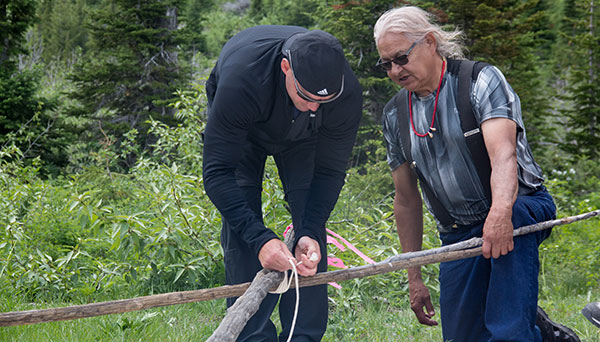Strengthening the Capacity of Biosphere Regions; Place-based Solutions for North American Sustainability
Organization: Center For Large Landscape Conservation
The mission of the Center for Large Landscape Conservation is to protect life on Earth by promoting ecological connectivity to support healthy wildlife habitats and safeguard nature’s resilience to climate change.
Location: The list of potential US/Canada biosphere regions with twin pairings includes: 1 of 3 BRs in southwestern British Columbia/Olympic BRs; Waterton/Crown of the Continent BRs; Georgian Bay/Obtawaing BRs; and Frontenac Arch/Champlain-Adirondack BRs.
Country: Canada, United States
Other Organizations Involved: Canadian Biosphere Reserve Association (CBRA), United States Biosphere Network (USBN), and (to be selected) transboundary biosphere regions.

©National Park Service photo
Background
The interrelated crises of the Covid-19 pandemic, climate change, and loss of biodiversity present existential threats to North America’s natural systems and human communities. Threats from rising sea levels, more intense and more frequent storms, fires, floods, droughts, invasive species, agricultural disruptions, damaged infrastructure, and reduction in nature-based tourism all have profound environmental and socio-economic consequences. These challenges call for solutions that maximize consensus and capacity across sectors at the community and large landscape levels.
Goals
The project is intended to increase the capacity of the North American Network of Biosphere Regions by engaging youth in bioregional climate resilience projects and strengthening local collaborations and exchanges to find solutions that can be scaled.
Main activities
Stipends will be provided to a minimum of four non-traditional interns from among Indigenous youth and local communities within selected biosphere regions. The interns will learn and share experiences with targeted communities on best practices to confront the impacts of climate change, restore natural habitat and wildlife corridors, and increase awareness of ecosystem services to the local economies.
Outcomes
Youth participants will gain skills and knowledge by working in diverse professional settings with scientists, land managers, and nongovernmental organizations on bioregional climate resilience planning, restoration, communications, and research projects. Biosphere regions will gain organizational capacity to perform these projects and include tribes, First Nations, and Indigenous stewardship ethics in their work.